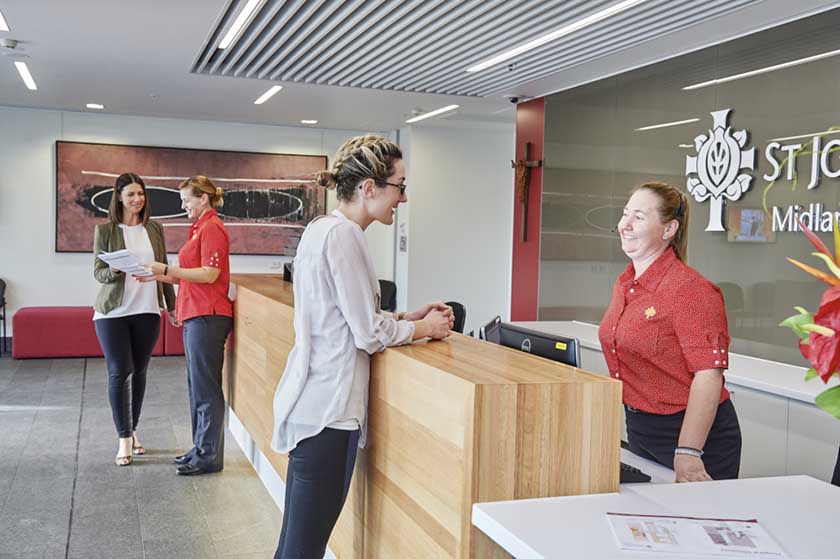Before you are admitted to hospital for a surgery, there are things to do to ensure you are ready for your operation.
A month before your surgery
Your doctor will have arranged for your admission to hospital and will let you know your admission date. They will also tell you if there is any pre-admission preparation you may require, such as blood and other diagnostic tests and medications to be stopped.
You will need to complete the pre-admission form provided by your doctor and send it to the hospital seven days prior to your admission date. This form helps us to plan and prepare for your admission and assists us to provide the best care during your stay.
You may be contacted by a pre-admission caregiver about your admission or if further tests are required. This can be done on the phone or in person at the hospital.
If a pre-admission hospital appointment is needed a pre-admission nurse will complete a pre-operative check which may include blood tests or other scans. You will also be assessed to see if you may need any further help after discharge.
Importantly, this is also an opportunity for you to ask any questions you may have about your surgery. I suggest you write down your questions so you don’t forget to ask everything on your mind.
Important note for people who smoke
If you smoke, now is the time to give up or at least reduce the amount of cigarettes you smoke. Smoking can increase your risk of complications during and after surgery. Furthermore, if you stop smoking before your surgery you are more likely to have:
- Quicker recovery
- Your wound heal quicker
- A shorter stay in hospital
One week before your surgery
If you are in quarantine following travel, have had contact with a confirmed case of COVID-19, work in a high risk environment where there have been COVID-19 outbreaks or have symptoms of COVID (fever, cough, sore throat, shortness of breath, runny nose or loss of smell) you must notify your surgeon as soon as possible. You may be required to have a COVID-19 test.
Additionally, follow any other special instructions from your doctor, in particular, if you need to stop any medication such as blood thinners.
One day before your surgery
A hospital caregiver will contact you in the afternoon of the business day before your surgery with information about your admission and fasting times and pre-surgery instructions.
Please notify the pre-admission nurse during your interview if you are in quarantine following travel or contact with a confirmed case of COVID-19, work in a high risk environment where there have been COVID-19 outbreaks or have symptoms of COVID-19 (fever, cough, sore throat, shortness of breath, runny nose, loss of smell), or notify the hospital as soon as possible.
It is not recommended that you drive home after surgery, so it is good to make sure you have your travel arrangements finalised at this time. This could mean a quick call or SMS to your family member or friend to confirm that they can drop you off or pick you up.
If you are undergoing a day procedure, you must arrange for a responsible adult to drive you home and stay with you for 24hrs.
The day of surgery
It is now time to begin fasting. Unless otherwise instructed, do not eat anything for six hours before your scheduled procedure. You may drink clear fluids (water, black tea, clear apple juice) up until two hours prior to your scheduled procedure. These times will be confirmed by a hospital caregiver during your pre-admission phone call the day prior.
Unless otherwise instructed, continue to take prescribed medications.
Shower at home and do not apply any powders, deodorants or other cosmetics.
Ensure any gel, acrylic nails and nail polish is removed from your fingers and toes.
What to bring
Read our admissions information to find out all the details about what to bring to hospital. Importantly, we strongly recommend you leave valuables such as jewellery (wedding rings can be taped) and large amounts of cash at home. Keep only small amounts of cash for newspapers or other items.
If you have any questions about your upcoming surgery contact your specialist’s practise or phone the hospital pre-admission department.


